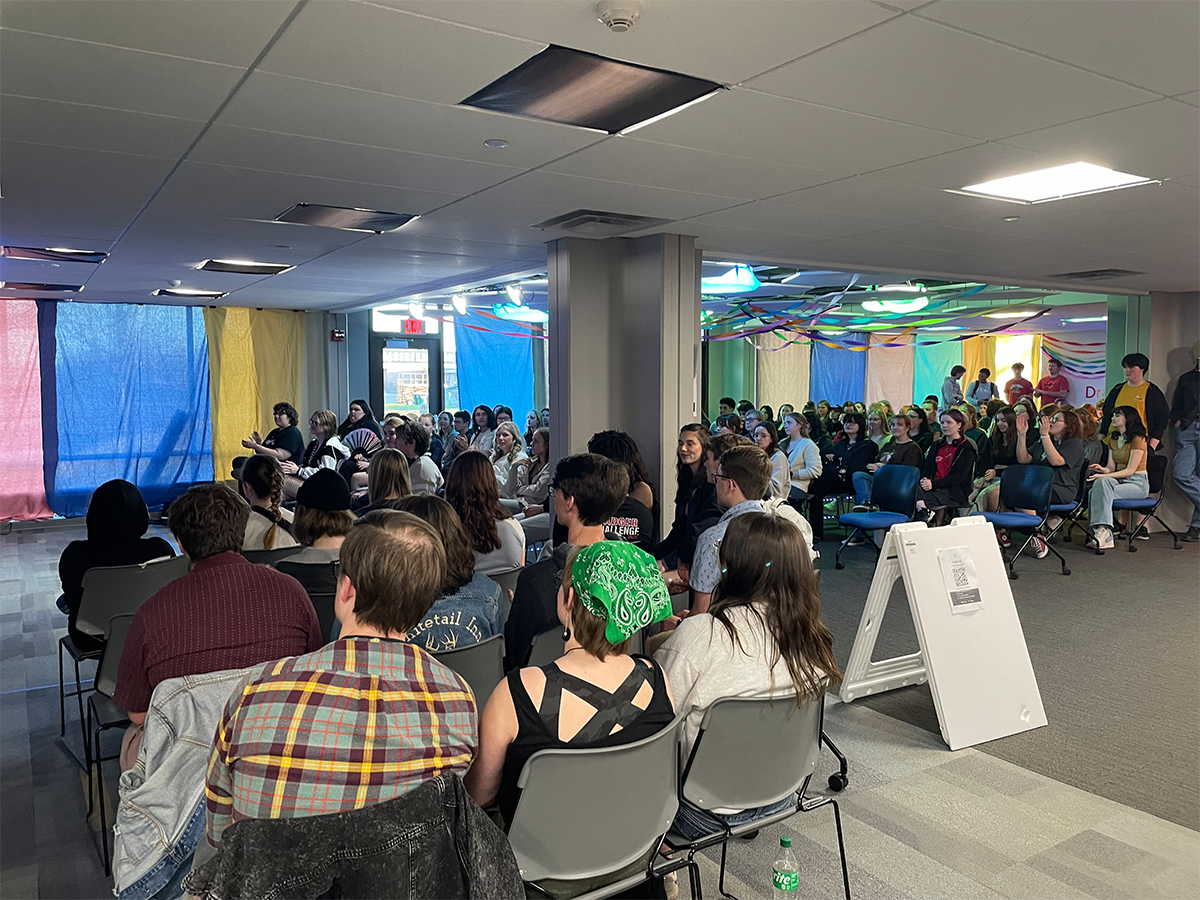“The only verdict is vengeance; a vendetta, held as a votive, not in vain, for the value and veracity of such shall one day vindicate the vigilant and the virtuous.”
The above excerpt comes from one of the well-known monologues in “V for Vendetta.” The film was released in 2006, starring Natalie Portman as Evey Hammond and Hugo Weaving as V.
But what is this movie about?
V, as he is called throughout, wears the mask of Guy Fawkes and uses terrorist tactics to fight a totalitarian London quite different from the present. After rescuing Hammond from the police, V finds that she is not only a misinformed girl, but a potential ally in his efforts to bring down the government.
Guy Fawkes, you ask?
Well, Guy Fawkes was a British gentleman who attempted to blow up British Parliament on Nov. 5, 1605. Of course, he was hanged, drawn and quartered for treason for the Gunpowder Plot, as it’s called. Alan Hayne’s book “The Gunpowder Plot: Faith in Rebellion,” explains that the attempt failed so gloriously that people in London still light fireworks and burn his effigy on Nov. 5 — but not after being tortured until his breaking point confession.
Since then, the likeness of Fawkes was recreated in the “V for Vendetta” 1980s comic book series created by Alan Moore. And once the comic book was turned into the 2006 film, the likeness of Fawkes has become iconic for the repressed.
And why is this movie so important today?
A BBC article from Oct. 20 said that Wikileaks founder Julian Assange arrived at the Occupy London Stock Exchange protest wearing the mask. They also appeared on the faces of an anti-Scientology protest in 2008.
But still today, men, women and children have worn the “V mask,” as they are called, to protests across the country (particularly at the Occupy Wall Street protests) and across the globe — anywhere the government and powerful bodies seem to dominate the underdogs.
“I believe as our world’s population grows and we struggle for ways to control the populations these types of governments are very likely,” junior Kristine Rivall said. “It is important to keep in mind the main premise of the film: People shouldn’t be scared of their governments, governments should be scared of their people.”
Alan Moore, the creator of the comic strip, told the BBC he’s happy with people using the likeness of his comic strip character in protests.
“The Guy Fawkes mask has now become a common brand and a convenient placard to use in protest against tyranny — it seems quite unique, an icon of popular culture being used this way,” he told the BBC.
In light of all the protests across the world, what is it that draws people to this movie? What makes it such a cultural icon and what is it that gets younger crowds involved?
“The film raises into question a lot of practices of modern society. It really is a mix of several different ideas, like ‘1984’ — in a world in the future where we sacrifice many to all of our freedoms for governmental protection willingly,” Rivall said.
The film currently has a high rating on RottenTomatoes.com and continues to draw in audiences of all ages.
This week, you can capture the rapture for yourself in Davies Theatre tonight through Sunday at 6:30 p.m. and again at 8 p.m.
Admission is free if you’re a student, as always!
“Overall the movie has a nice balance of philosophy and action — very tasteful cinematography,” Rivall said. “It’s just a feel-good reminder film for people when maybe they feel like they can’t make a difference.”






